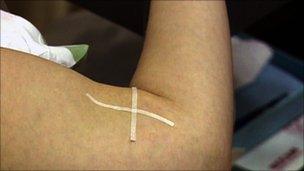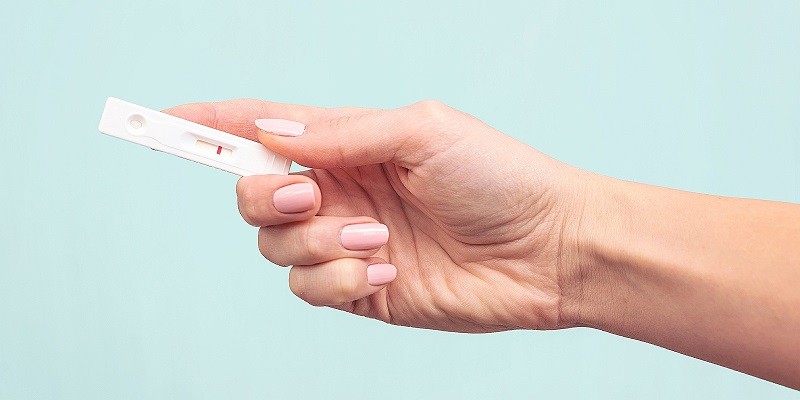Last Updated on April 16, 2023
Yes, you can sue if you get pregnant on Nexplanon. While it is not common, some women have become pregnant while using the contraceptive implant device. If this happens to you and a healthcare provider did not properly inform or advise you of its potential risks, then it may be possible to file a lawsuit against them for medical malpractice.
You would need to show that they failed to provide adequate care in prescribing or administering the device and/or failed to warn you of any potential risks associated with its use. Additionally, there may be other causes of action such as negligence or breach of warranty depending on your specific circumstances. Consulting an experienced attorney will help determine whether legal recourse is viable in your case.
- Seek medical advice: Before taking any legal action, it is important to seek out medical advice from a health care provider who has knowledge of Nexplanon and its possible side effects
- It is best to consult with an experienced obstetrician or gynecologist (OB-GYN) in order to determine the cause of your pregnancy while using Nexplanon
- Gather evidence: Documentation will be needed in order to prove that you were pregnant due to the use of Nexplanon, including medical records and other pertinent information such as dates of when you had the device implanted and removed, results from laboratory tests, ultrasounds/sonograms performed during your pregnancy, photographic evidence etc
- Research relevant laws: You should research applicable state and federal laws which may govern cases involving defective products such as Nexplanon before filing a lawsuit against Merck & Co
- , Inc
- , the makers of this birth control product
- 4
- File a lawsuit: Once all necessary documentation has been obtained and reviewed by an attorney specializing in product liability law, they can advise you on whether or not they believe it would be beneficial for you to file a lawsuit against Merck & Co
- , Inc
Nexplanon Pregnancy Stories
Nexplanon is an effective long-term birth control method and has a high rate of success when it comes to preventing pregnancy. However, there have been some Nexplanon pregnancy stories reported over the years where women have become pregnant while using this form of contraception. It’s important to note that these cases are rare, but they do still happen occasionally.
To reduce your risk of getting pregnant with Nexplanon, always follow all instructions provided by your healthcare provider carefully and make sure you’re having regular check-ups every 3 months or as recommended by your doctor.

Credit: www.bbc.co.uk
What If I Get Pregnant While on Nexplanon?
If you become pregnant while using Nexplanon, it is important to speak with your healthcare provider as soon as possible. Depending on how far along the pregnancy has progressed and other factors, your doctor may advise that you continue using the device or have it removed. In either case, regular prenatal care should be sought out in order to ensure a healthy pregnancy and delivery.
If you decide to continue using Nexplanon during pregnancy, there is an increased risk of preterm labor and birth, so it is essential for both mother and baby’s health to closely monitor any potential complications throughout the duration of the pregnancy.
Is There a Lawsuit against Nexplanon?
Yes, there is a lawsuit against Nexplanon. The lawsuit was filed in the United States District Court for the Eastern District of Pennsylvania by two women who allege that they suffered severe injuries after using Nexplanon birth control implants manufactured and sold by Merck & Co., Inc. The plaintiffs claim that they were not properly warned about the potential risks associated with using this form of birth control implant and allege that Merck was negligent in designing, manufacturing, marketing, distributing and selling its product.
They seek compensatory damages to cover medical expenses related to their injuries as well as punitive damages for pain and suffering caused by their use of the device.
How Many Reported Pregnancies With Nexplanon?
According to a study published in the New England Journal of Medicine, there were only 9 reported pregnancies out of 17,000 women using Nexplanon during the first year of use. This is an incredibly low pregnancy rate – less than 0.05 percent. Furthermore, an additional two pregnancies occurred in years 2 and 3 of use; however, these resulted from incorrect insertion or removal techniques rather than failure rates attributed to Nexplanon itself.
Ultimately this means that when used correctly with proper insertion and removal techniques, Nexplanon is 99.5% effective at preventing pregnancy for up to three years after implantation.
What Can Happen If You Get Pregnant on the Implant?
If you get pregnant on the implant, it is important to consult a healthcare provider as soon as possible. The implant can increase your risk of an ectopic pregnancy, which is a potentially dangerous condition in which the embryo implants outside of the uterus. It may also be more difficult for a doctor to determine how far along you are in your pregnancy if you have the implant inserted.
In addition, there could be other risks associated with getting pregnant while using an implanted birth control method such as increased risk of miscarriage or preterm labor and delivery. Therefore, it is important to talk to your doctor about these potential risks before deciding whether or not to continue with an implanted birth control method after discovering that you are pregnant.
Pregnancy While On Birth Control (Obstetrics – High Risk)
Conclusion
In conclusion, the answer to whether or not a person can sue if they get pregnant on Nexplanon is complex. It depends on many factors such as where you live, how long you have been using the birth control device and what other circumstances are present. In any case, it is important to consult with an attorney that specializes in medical malpractice and product liability law before pursuing legal action.

